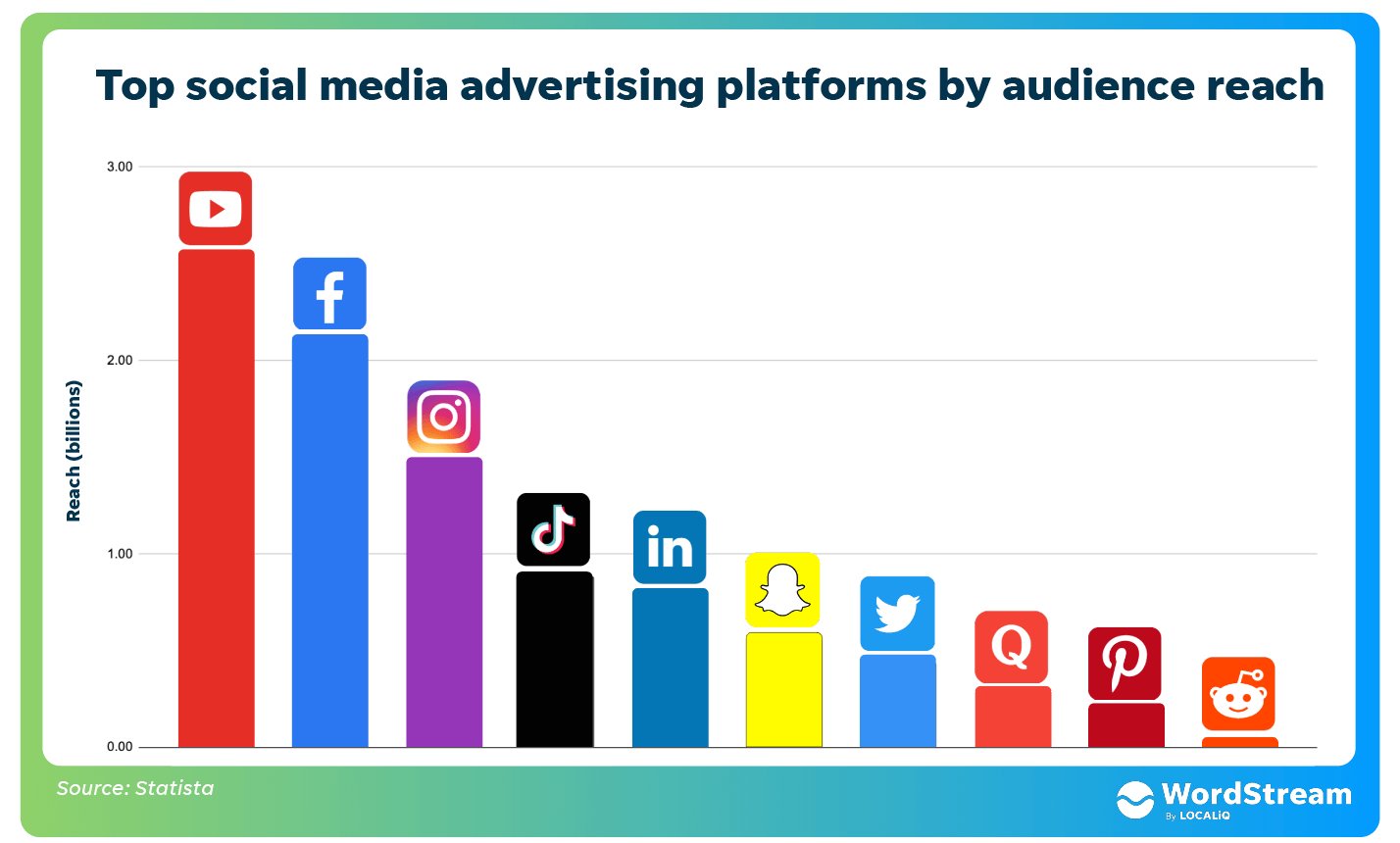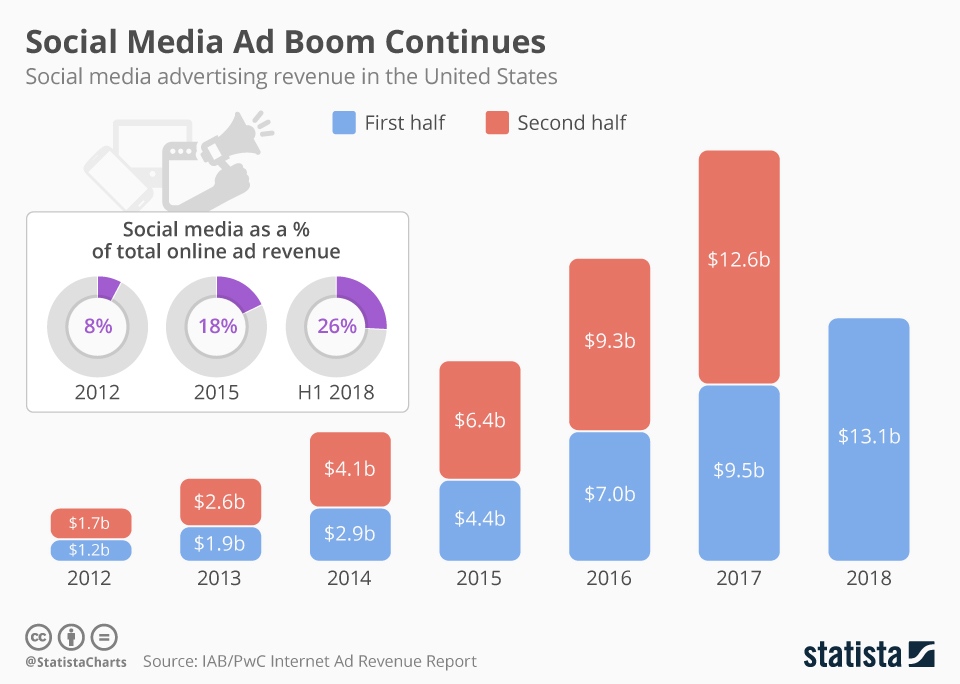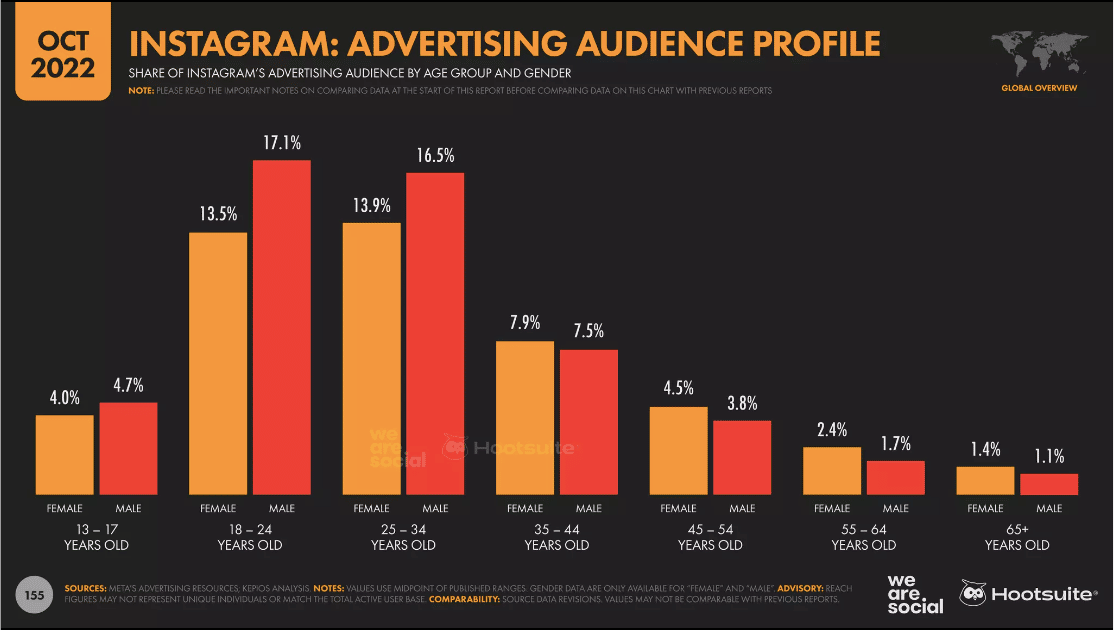Social Media Management
Love them or hate them, they're everywhere.
But this could be good news...
if you know how to use them in your favor.
Let's address the behemoths in the room
The symbiotic relationship between social media and digital marketing has fundamentally transformed the landscape for small businesses. In this digital age, social media platforms have emerged as powerful tools for businesses to reach their target audience with unprecedented precision. Through data analytics and sophisticated algorithms, we can now tailor their content to ultra-specific user demographics, increasing the likelihood of converting these users into loyal clients.
Recent statistics show global social media advertising revenue reached an astounding $135 billion in 2020, underscoring the immense profit potential that social media platforms offer to businesses of all sizes. This level of ad revenue speaks to the effectiveness of leveraging social media to promote products and services. It's a co-dependency. Social Media platforms irrevocably need businesses to advertise in and through them. That is how they grow and how YOU grow with them.
 Beyond the direct financial gains, small businesses can also
cultivate a lasting online presence through social media. By
consistently engaging with their audience, sharing valuable
content, and interacting with customers, businesses can
organically grow their followers. This not only
builds brand loyalty but ensures that your brand is always
in the back of users' minds.
Beyond the direct financial gains, small businesses can also
cultivate a lasting online presence through social media. By
consistently engaging with their audience, sharing valuable
content, and interacting with customers, businesses can
organically grow their followers. This not only
builds brand loyalty but ensures that your brand is always
in the back of users' minds.
But even if users don't make immediate purchases, the constant exposure to your brand on social media can lead to increased brand recognition and trust over time. In fact, studies show that 71% of consumers who have had a positive experience with a brand on social media are more likely to recommend it to others. Thus, the connection between social media and digital marketing offers a wealth of opportunities for small businesses to expand their reach, boost profits, and establish a strong online presence in the ever-evolving digital landscape.
Consider this before you start typing
The social media game is by no means a game of luck. While the data can be overhwelming, once you take the time to understand it, the potential of these mediums is unmistakable. The sheer amount of users is enough to arouse most business owners. But navigating your way through all the buzz, the tools, the users and the general frenzy of social media is no easy feat. In order to launch a successful social media campaign, the marketer must consider a plethora of factors. We'll discuss some of them next:
 Target Audience Analysis:
Digital marketers thoroughly assess a
client's target audience, considering demographics, psychographics,
and online behavior. This analysis helps determine which social
media platforms are most relevant and how to tailor content to
resonate with the intended audience.
Target Audience Analysis:
Digital marketers thoroughly assess a
client's target audience, considering demographics, psychographics,
and online behavior. This analysis helps determine which social
media platforms are most relevant and how to tailor content to
resonate with the intended audience.
Competitive Landscape: Evaluating a client's competitors and their digital presence is crucial. Marketers examine the strengths and weaknesses of competitors' social media strategies to identify opportunities and gaps in the market.
Content Strategy: Developing a content strategy involves planning the type of content, posting frequency, and content calendar. Marketers must consider the client's industry, goals, and audience preferences to create engaging and valuable content.
Advertising Budget and Campaigns: Budget allocation for paid advertising campaigns is a key technical factor. Marketers decide how much to invest in social media ads, targeting options, and ad formats to maximize ROI and reach business objectives.
Data Analytics and Metrics: Digital marketers rely on data analytics tools to track and measure the performance of social media campaigns. This includes monitoring key metrics like engagement rates, click-through rates, and conversion rates to optimize strategies over time.
Platform-Specific Features: Each social media platform offers unique features and capabilities. Marketers consider these platform-specific factors when crafting a strategy, such as Instagram's visual focus, LinkedIn's professional network, or TikTok's short-form video format, to create content that aligns with platform strengths and user expectations.
Have faith, but beware of false prophets

Social media campaigns, despite their immense potential, often fail - particularly among small businesses. One notable reason is the lack of a well-defined strategy. Shockingly, nearly 90% of small businesses admit to not having a documented social media strategy, leading to haphazard efforts that fail to resonate with their audience.
For instance, the infamous Fyre Festival, which relied heavily on social media influencers but lacked a solid execution plan, resulted in a colossal disaster and damaged the event's reputation forever. Nevertheless, notice how despite the company's inability to come throug for their customers, social medias were stil powerful enough to generate the hollywoodian buzz and leads they were seeking.
Another significant factor contributing to campaign failure is unrealistic expectations. Many small businesses underestimate the time it takes to see tangible results, expecting instant gratification in terms of sales and engagement. Statistically, 60% of small businesses that launch social media campaigns expect to see ROI within the first month, often leading to disappointment. Inconsistent posting and failure to engage with followers also plague small businesses; studies indicate that 30% of businesses don't respond to comments or messages, negatively impacting customer satisfaction. Overall, social media campaign failure among small businesses can be attributed to a combination of poor planning, overestimation of immediate results, and a lack of consistent, engaging interaction with their audience.
The small business advantage
 These days, harnessing the power of social media
engagement is an essential strategy for small businesses looking
to thrive in a competitive marketplace. It's not just about having
a presence; it's about actively engaging with your target audience.
One crucial strategy for that is utilizing multiple platforms to achieve the
desired results. Small businesses
that use at least four different social media platforms have a 67%
higher chance of experiencing better sales. This
highlights the importance of diversifying your social media strategy
to reach a wider audience and increase your brand's visibility.
These days, harnessing the power of social media
engagement is an essential strategy for small businesses looking
to thrive in a competitive marketplace. It's not just about having
a presence; it's about actively engaging with your target audience.
One crucial strategy for that is utilizing multiple platforms to achieve the
desired results. Small businesses
that use at least four different social media platforms have a 67%
higher chance of experiencing better sales. This
highlights the importance of diversifying your social media strategy
to reach a wider audience and increase your brand's visibility.
Furthermore, social media allows for precise area-based user targeting, which can be a game-changer for small businesses. This is particularly beneficial for niche businesses, as statistics indicate that 63% of consumers prefer to buy from brands that are relevant to their specific interests. By understanding and leveraging your business niche, you can gain incredible popularity and clientele through social media.
Micro-targeted ads, for instance, can pinpoint precise customers who are on the verge of making a purchase or seeking information related to your niche, in your neighborhood, that exact moment. Social media platforms have the capability to track user behavior, group affiliations, and preferences, making it possible to influence their decisions effectively. As a small business you don't need to be intimidated by the complexity of social media navigation. With our assistance, we'll help you put all these powerful tools to very good use, and together we'll expand your influence beyond what you thought was ever achievable.